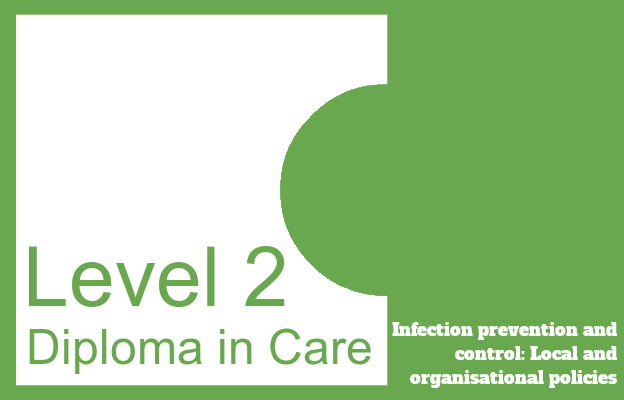This page is designed to answer the following questions:
- 2.2 Identify local and organisational policies relevant to the prevention and control of infection (Level 2 Diploma in Care, The principles of infection prevention and control)
- 3.1 Describe procedures and systems relevant to the prevention and control of infection (Level 2 Diploma in Care, The principles of infection prevention and control)
As well as national legislation and regulatory bodies, policies relating to the prevention and control of infection also exist at the local level and should be present within the organisation in which you work.
Local policies can include those by NHS trusts whereby they will have clear plans on how to prevent and manage any outbreaks of infection. Local authorities are also responsible for public health within their region (e.g. city, borough etc.) and may have an Infection Prevention and Control Team or Environmental Health Team to provide this service.
Your employer should also have their own policies to prevent and manage infection. Aspects of their policy or policies may include:
- Good personal hygiene
- Performing risk assessments
- Using Personal Protective Equipment (PPE)
- Following correct procedures
- Correct storage, use and disposal of substances hazardous to health
- Correct washing of soiled clothes and linen
To adhere to policies relating to infection prevention and control, it is essential that you follow your employer’s procedures and the systems that they have put in place.
For example, there may be a procedure for changing the bedding of an individual that you care for that involves:
- Wearing correct PPE (gloves, apron etc.)
- Hold soiled linen away from uniform
- Linen from one individual’s bed should never touch the bed of another individual
- Soiled linen should be transported to the washing machine within a portable linen hamper
- Hands should be washed after handling soiled linen
- Linen should be washed at a temperature of 65 degrees Celsius for at least 10 minutes of the wash cycle
Similar procedures may exist for other tasks such as handling medication, providing personal care or food preparation.

